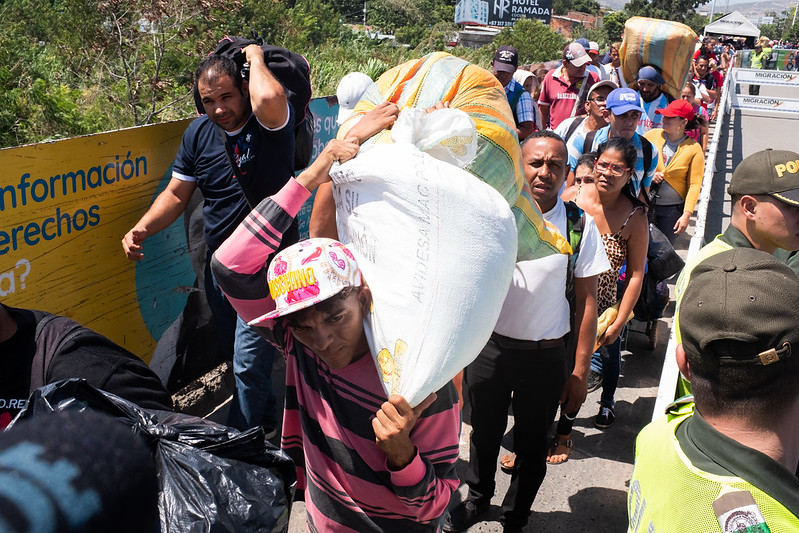The EU EUROsociAL+ Programme, through the Democratic Governance Area and coordinated by FIIAPP, is promoting a comprehensive response to guarantee protection for people in situations of human mobility in Latin American countries.

Photo: Cúcuta. Colombia-Venezuela border / IACHR
The COVID-19 pandemic has further endangered the well-being of migrants and refugees in Latin America, who were already in an extremely precarious situation due to the Venezuelan and Central American migration crisis. The migratory phenomenon will continue, and even increase, in the coming decades, particularly during the post-COVID stage, according to the diagnosis in Access to justice for people in the context of human mobility carried out by the European Union programme. The Public Defender’s Offices are institutions that can make a difference in this critical scenario by guaranteeing access to justice and the protection of human rights for this group.
Because of this, last year, the Inter-American Association of Public Defender’s Office (AIDEF), with support from EUROsociAL and assistance from the Public Defender’s Office of the Union of Brazil and the Public Defender’s Office of Chile, worked on a proposal to create a Network and a regional legal assistance model for people in situations of mobility that was presented last December to the heads of the Public Defenders’ Offices in the region.
As the General Manager of FIIAPP, Anna Terrón, said during her presentation, “people in situations of mobility may not be especially poor or vulnerable people, but are rather on a journey that promises to empower them and improve their lives.” However, these journeys are beset with risks and, as indicated by the Global Pact for Migration, one of them is to “being in a space where access to justice is difficult and keeps you out of the national system,” explains Terrón. “We are doing something very important by expanding this national framework into a regional one that enables them to keep rights and the capacity for these men, women and children to be able to cope with their own existence and give meaning to their lives,” she added.
According to the Secretary General of AIDEF, Andrés Mahnke, “there is no aspect of our current history that will be more significant than the migratory phenomenon. And complex scenarios need complex, extraordinary and comprehensive protective measures to safeguard people’s rights and dignity.”
Experts Juan Jiménez and Carmen Miguel highlighted that the objective of the Model is to guide the way in which public defenders in the region will comply with international human rights regulations to improve access to justice for this section of the population. At the same time, the Legal Assistance Network for Migrants, which would be integrated into AIDEF, would be a space where countries can share and exchange information on specific cases, among other aspects.
The Model includes a table that identifies vulnerabilities associated with the migratory phenomenon ―such as the condition of unaccompanied minors, women victims of gender violence and trafficking, or possible asylum or refugee applicants― that require a legal analysis of the standards that protect them and referral protocols that must be activated to protect them.
Sonia González, Coordinator of the Democratic Governance Area, believes that “this model and network will improve governance of regional and international migration and strengthen the link between migration and development, as stated by both the Special Rapporteur on the rights of migrants from the Inter-American Commission on Human Rights, Julissa Mantilla, and the United Nations Special Rapporteur on the human rights of migrants, Felipe González, with whom we have held meetings to share points of view.”
The head of the Inclusive Justice Line of the programme, María Luisa Domínguez, reported that the European Union programme has now started receiving demands from the countries to implement the regional model at the national level and that will be prioritised by the EUROsociAL+ Committee.
The General Coordinator of AIDEF, Stella Maris Martínez, bid a fond farewell to Andrés Mahnke, who will end his term at the head of AIDEF and the Chilean National Public Defender’s Office in the next few days and thanked him for “his excellent performance and the international projection that he has contributed to the association.”



